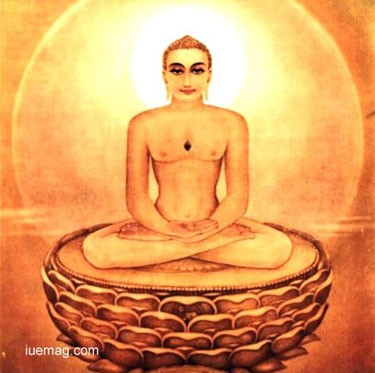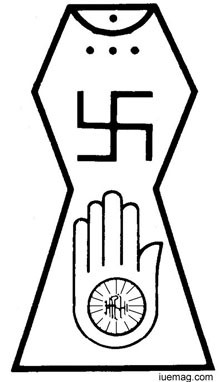

What is 'Santhara'?

Why Jain community is on streets? Why everyone is so disappointed? Why are Jain people so strongly embedded to an age old practice? Everyone wants to know about the new term that has become popular in a very short time. Every one is today curious to know about the “Santhara” or “Sanlekhana” system of Jain philosophy. The decision of High Court of Rajasthan has made this matter touch news headlines and today everyone wants to know about this age old practice of Jain philosophy.
Jain community and particularly Jain Saints have practiced “Santhara” or “Sanlekhana” from times immemorial therefore the world should at least know about this practice before it completely disappears into history. Jain philosophy is based on the idea that the soul and body are two different entities and the body [which is reflection of “pudgals” (Pudgal refers to material attachment to soul due to the actions or inactions of the soul) acquired by the soul] is a temporary abode of the soul. Death or suicide is not appreciated nor welcome in Jain philosophy. Life is a journey for the ultimate goal of the soul to attain salvation (which is to free itself from all pudgal through various means including fasting or “Tap” or “Tapasya”.
There is emphasis on “Tap” in Jain philosophy – which is based on the ideas of self-control, self-purification and self-realization. A person who undertakes “fast”, or “Athai” or “Maaskhaman” or “Varshitap” is actually undertaking self-purification for getting free from “pudgal” and attaining “Moksha”. When a person is giving up food and for one day - the person is devoting himself to his soul and the “Tap” enables the person to feel the soul inside the body and feel and experience the duality of “Soul” and “body”.
Jain community and particularly Jain Saints have practiced “Santhara” or “Sanlekhana” from times immemorial therefore the world should at least know about this practice before it completely disappears into history. Jain philosophy is based on the idea that the soul and body are two different entities and the body [which is reflection of “pudgals” (Pudgal refers to material attachment to soul due to the actions or inactions of the soul) acquired by the soul] is a temporary abode of the soul. Death or suicide is not appreciated nor welcome in Jain philosophy. Life is a journey for the ultimate goal of the soul to attain salvation (which is to free itself from all pudgal through various means including fasting or “Tap” or “Tapasya”.
There is emphasis on “Tap” in Jain philosophy – which is based on the ideas of self-control, self-purification and self-realization. A person who undertakes “fast”, or “Athai” or “Maaskhaman” or “Varshitap” is actually undertaking self-purification for getting free from “pudgal” and attaining “Moksha”. When a person is giving up food and for one day - the person is devoting himself to his soul and the “Tap” enables the person to feel the soul inside the body and feel and experience the duality of “Soul” and “body”.

There are various types of “Tap” (acts of fasting) - and the ultimate of such “Tap” is “Santhara” or “Sanlekhana” which is the fast for the rest of life. A person joyfully (by choice) takes the decision (under supervision of a Jain Saint) for this and spends his rest of life in meditating on “soul”. This type of fast is adopted by a person, who finds the body otherwise completely useless and therefore takes this ultimate form of fasting. This type of fast is administrated by a Guru (who is a Jain Saint). The person has the freedom of withdrawing from this decision and at any stage this fast can be cancelled also (by the choice of the decision maker - the person who is doing this “Tap” or fast).
The person takes every second of his life towards meditation, differentiation of Soul and Body and a movement towards Moksha or Salvation. This is not death - but Samadhi - attainment of higher status and liberation of soul from body is celebrated (not mourned). It is very difficult to understand, but it is the ultimate form of celebration in Jain community. It is a dream for a person to attain this highest level of celebration. Every year, a few such instances (generally by very elderly persons or by very old aged Jain Saints) happen, whereby “Santhara” takes place and people celebrate the opportunity. If death takes place in an unplanned way and a soul is not prepared for it - there is no certaininty for the destiny for next life. However, if there is “Santhara” the soul is preparing for its destiny and existence is an opportunity of celebration and planning for the future (this statement is based on Jain philosophy and logic and may not be understandable on purely physical scientific principles). The number of persons who were able to take “Santhara” is very small, but those persons were truly fortunate to have got the opportunity to pursue the ultimate goal of existence. Now we have to respect the decision of the Hon’ble High Court of Rajasthan and accordingly the age old practice has to stop now.
The person takes every second of his life towards meditation, differentiation of Soul and Body and a movement towards Moksha or Salvation. This is not death - but Samadhi - attainment of higher status and liberation of soul from body is celebrated (not mourned). It is very difficult to understand, but it is the ultimate form of celebration in Jain community. It is a dream for a person to attain this highest level of celebration. Every year, a few such instances (generally by very elderly persons or by very old aged Jain Saints) happen, whereby “Santhara” takes place and people celebrate the opportunity. If death takes place in an unplanned way and a soul is not prepared for it - there is no certaininty for the destiny for next life. However, if there is “Santhara” the soul is preparing for its destiny and existence is an opportunity of celebration and planning for the future (this statement is based on Jain philosophy and logic and may not be understandable on purely physical scientific principles). The number of persons who were able to take “Santhara” is very small, but those persons were truly fortunate to have got the opportunity to pursue the ultimate goal of existence. Now we have to respect the decision of the Hon’ble High Court of Rajasthan and accordingly the age old practice has to stop now.
Copyrights © 2025 Inspiration Unlimited - iU - Online Global Positivity Media
Any facts, figures or references stated here are made by the author & don't reflect the endorsement of iU at all times unless otherwise drafted by official staff at iU. A part [small/large] could be AI generated content at times and it's inevitable today. If you have a feedback particularly with regards to that, feel free to let us know. This article was first published here on 27th August 2015.
Overthinking? Uninspired? Brain Fogged?
Let's Reset That! Try iU's Positivity Chat NOW!

All chats are end-to-end encrypted by WhatsApp and won't be shared anywhere [won't be stored either].


